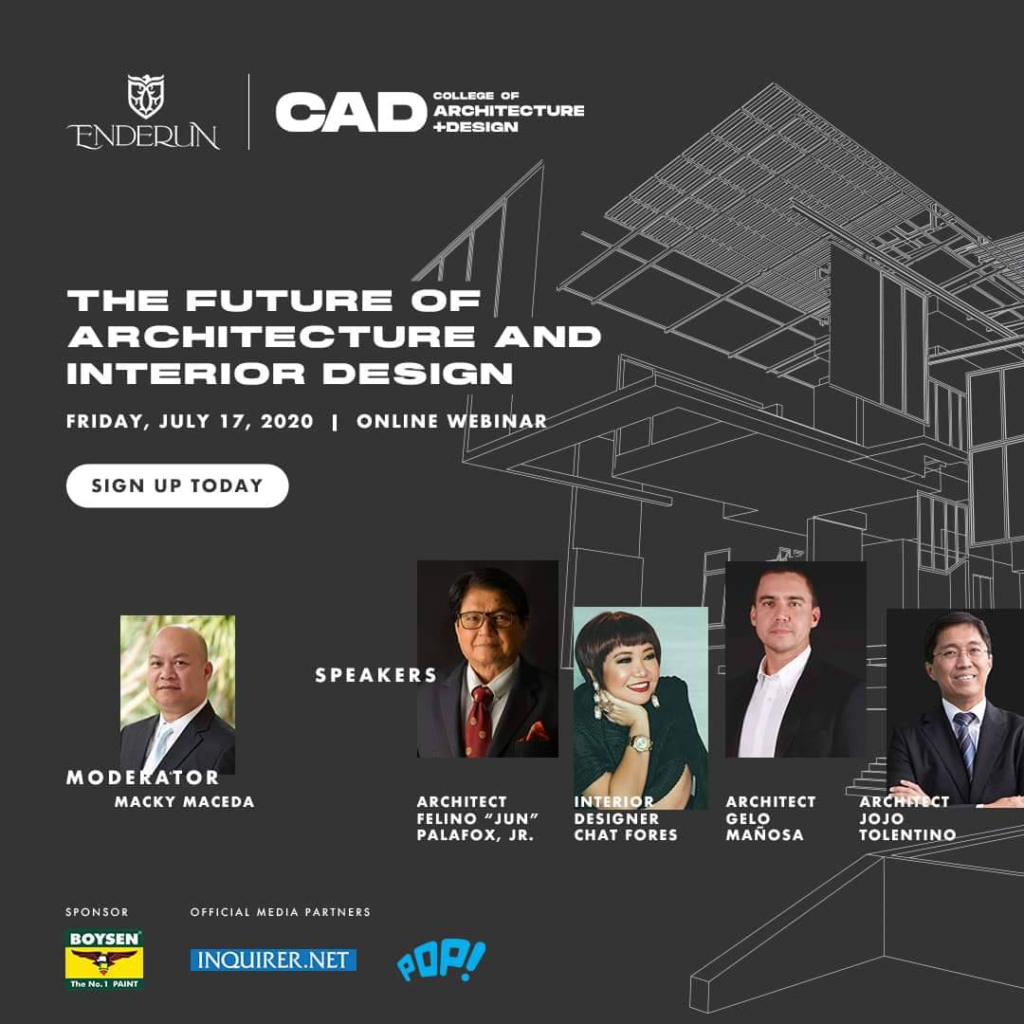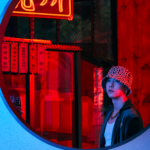Enderun Colleges recently hosted a webinar entitled, “The Future of Architecture and Interior Design: Reshaping Our Cities, Buildings & Homes” where they featured a panel of preeminent speakers of the highly respected industries namely Architect Jun Palafox, Jr., Architect Gelo Mañosa, Interior Designer Chat Fores, and Architect Jojo Tolentino. The speakers shared their insights on the forthcoming industries with useful tips on how people can adapt to changes.
Architect Palafox discussed the significant impacts of smart city planning which highly encourages utilization of efficient processes and essentially integrating social, environmental and economic goals in order to provide a higher quality of life for the citizens, businesses, and visitors. He said, “The road corridor should be one-third each for landscape, for people, and for vehicles. Those with less in wheels should have more in roads.”
In order to make our cities more walkable and likeable, Architect Palafox explained the importance of having a smart mobility and transportation system. This helps in reducing congestion while promoting faster, environment-friendly and affordable transportation options for all, perfect for today’s social distancing measures.
Architect Gelo Mañosa presented the post-COVID changes in architectural structure. One of which, he explained, “I do foresee that foyers and mud rooms can be used as disinfectant or sanitation rooms prior to entering the house. Alternatively, the integration of large foyers, complete with cabinets, shoe racking systems, lavatories, prior to entering the house, can be acceptable conversion for some residential houses.” He also agreed with the less is more concept, “People learned during the ECQ that we can actually survive with a lot less; a lot of less luxuries in things. People shed a lot more things they don’t need. Space will be at a premium.”
In terms of finding the balance in a post-COVID scenario for the hospitality industry, Architect Mañosa added, “In leisure, we already see that traveling to visit friends and relatives has started to return first. Travel restrictions combined with economic uncertainty will translate into higher shares of domestic and close to home travel. Visiting other parts of the country or going to second homes will dominate the landscape while longer international leisure trips will be slow to return and travelers will expect greater flexibility when it comes to flight, hotel cancellations or change order fees.”
“In line with the movement of architecture, interior design has to move forward as well and with the current situation, we’re spending one-hundred percent of our lives at home. With these in mind, we have to adapt, adjust and make our spaces more functional without sacrificing the purpose of our house,” said Interior Designer Chat Fores when she discussed having a smart interior living.
With technology being the one of the most vital tools in today’s business continuity, Architect Jojo Tolentino explained the role of technology in design. “Digital transformation is important in our business. It’s an idea that its time has come. We have to find ways on how we can transform our business digitally. In the past, it was just an option but now, it’s the norm and that’s the future of doing business. We can procure skills, provide our expertise and our service anywhere in the world. What’s important is mindset. Change is difficult but we need to develop a growth mindset so that things evolve, and the practice has to progress.”
The webinar’s recording is available when you sign up here.
ADVT




